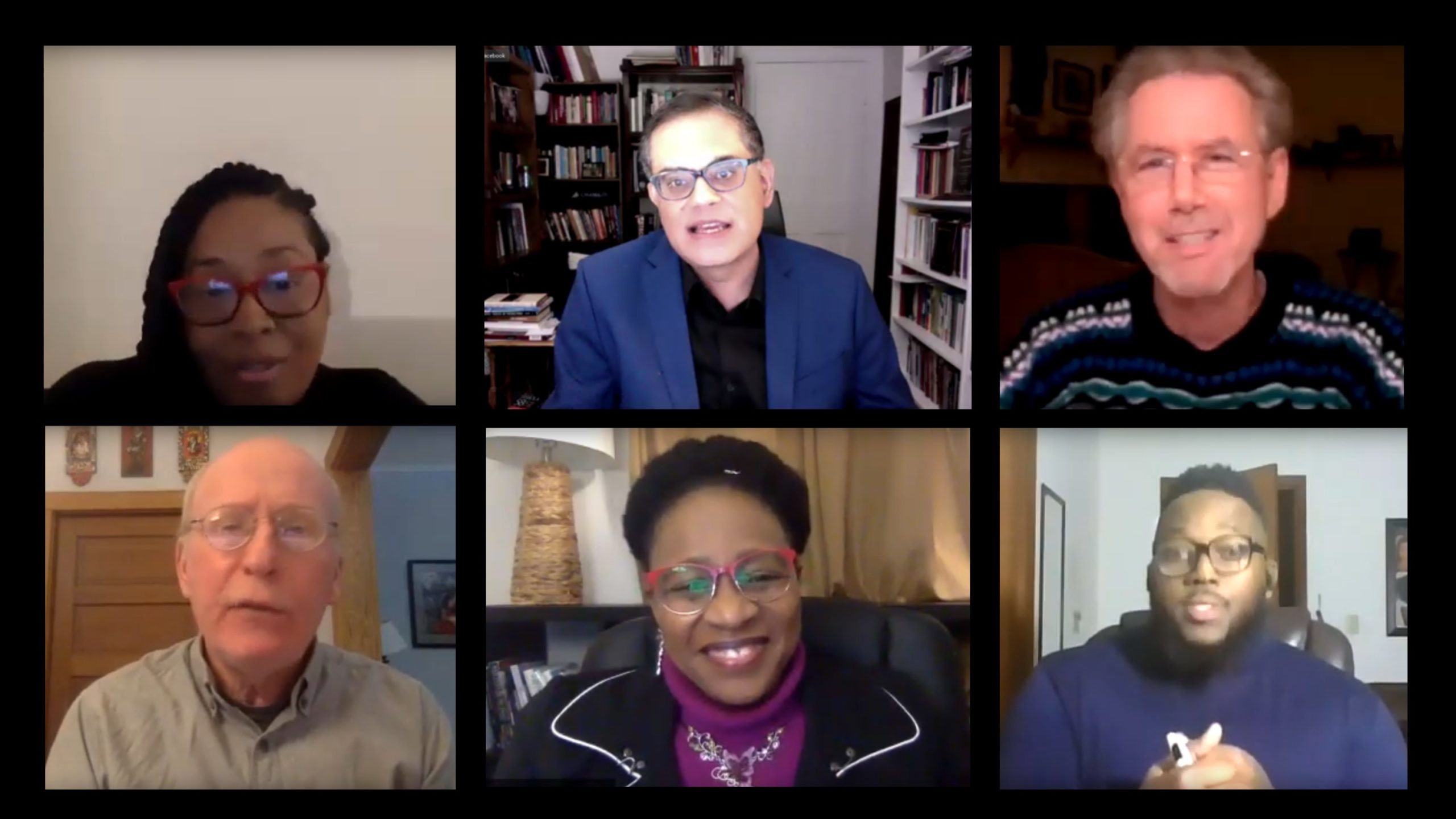The Park Center for Independent Media hosted a panel discussion on the results of election 2020, featuring Ithaca College-affiliated speakers who are experts in politics, media, and culture. The conversation tackled the issues that influenced the presidential race, the extraordinary mobilizing efforts that secured Joe Biden’s win, the devastating legacy of President Trump, the role of mainstream media in shaping electoral choices and why Trumpism remains a political force to reckon with.
Our speakers were Jeff Cohen, M. Nicole Horsley, RahK Lash, Thomas Shevory, and Peyi Soyinka-Airewele. Watch the full discussion here:
Raza Rumi, Director of PCIM, moderated the panel. His opening remarks touched upon several key issues of the election, including its record turnout amid a deadly pandemic and the deep polarization among the electorate. “As we move forward, the U.S. publics remain concerned by racial and economic insecurities, economic stress, racism and grave challenges of public health.”
Thomas Shevory broke down the political systems governing the election and our perceptions of it. He says, despite close calls in some states, “Ultimately, it was not a very close election,” and that “We didn’t have a civil war on election day . . . Trump said everything he possibly could to argue that the election is fraudulent, but those efforts have largely been ineffective.”
Given the 70 million Americans who still voted for Trump, Peyi Soyinka-Airewele observed, “We know the verdict: 2016 was not a fluke.” Intersecting issues of race, virus, and Democratic mobilization speak to the “urgent need for electoral accountability.” Soyinka-Airewele says “The MAGA nation, in all its variations, has become even more militantly fanatical.”
M. Nicole Horsley elaborated the historical significance of Kamala Harris as Vice President-elect, alongside the political power of Black women, who “have always been part of the political movement of mobilizations, from sororities to churches.” For this election in particular, Black women made their voices heard in record numbers, as “Trump presented a very immediate need and attention to stand up and vote.”
RahK Lash discussed how the Trump campaign’s refusal to transition power will further disadvantage those already hurt by the last four years and the pandemic. Further, “Our country has a long history of interposition and nullification … I fear what’s gonna happen in the year ahead of us. I fear the pushback. I fear the stalling … it feels like history is humming the same song on repeat.”
On the future of U.S. media, Jeff Cohen says “supporters of Trump aren’t going away, and Donald Trump is not going away. It would not stun me at all if he ran for president in 2024, but he will be a big presence in media.” Cohen described how a national popular vote could replace the electoral college, saying, “Imagine what it would do to the right wing. It would destroy them.”

